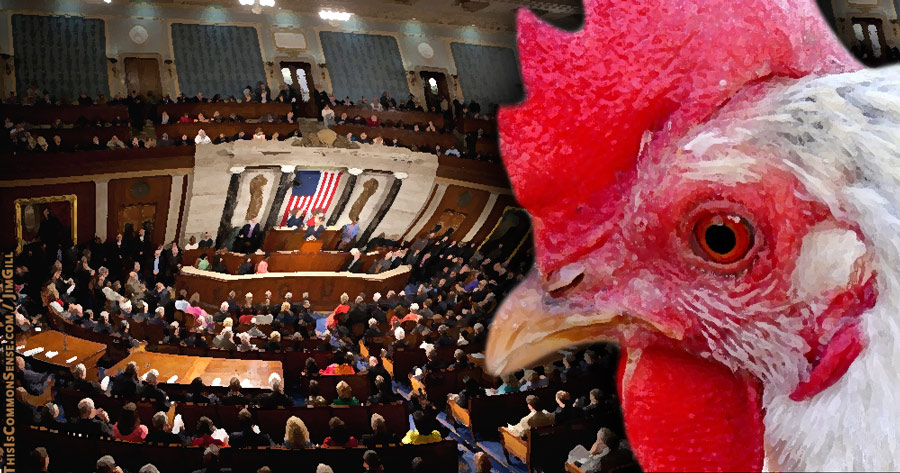Those who work for the president must tell the POTUS hard truths — on matters of war, most of all. Citizens must also be told hard truths. After all, we are, at least theoretically, the ultimate decision-makers . . . the president works for us.
That was my point yesterday.
But when it comes to life-and-death decisions about war and peace, there is also a congressional check on executive power.
Well, theoretically.
The big problem isn’t chicken-hawks in Congress, but chicken-ostriches. Bird-brained members of Congress implant their heads deep into the sand when it comes to foreign policy.
Where is the congressional debate over what to do in Afghanistan, our nation’s longest war? Rather than helping shape policy, Congress gladly lets the commander-in-chief control every aspect of foreign and military policy.
This gives the president unitary war-making power, anathema to the original character of our Republic, but it also means precious members of Congress are never held accountable for the disasters. After all, they didn’t do anything.
When mistakes are made or policy fails, the legislative branch can hold hearings to carp and moan and pontificate for the TV cameras.
American citizens, on the other hand, cannot so easily dodge the consequences of unaccountable foreign policies. In addition to engaging in military action in seven countries at present, the U.S. Government has pledged to defend another 50 countries, about one-fourth of the world.
Should more conflicts erupt, Congress won’t fight them. But our sons and daughters will.
This is Common Sense. I’m Paul Jacob.











